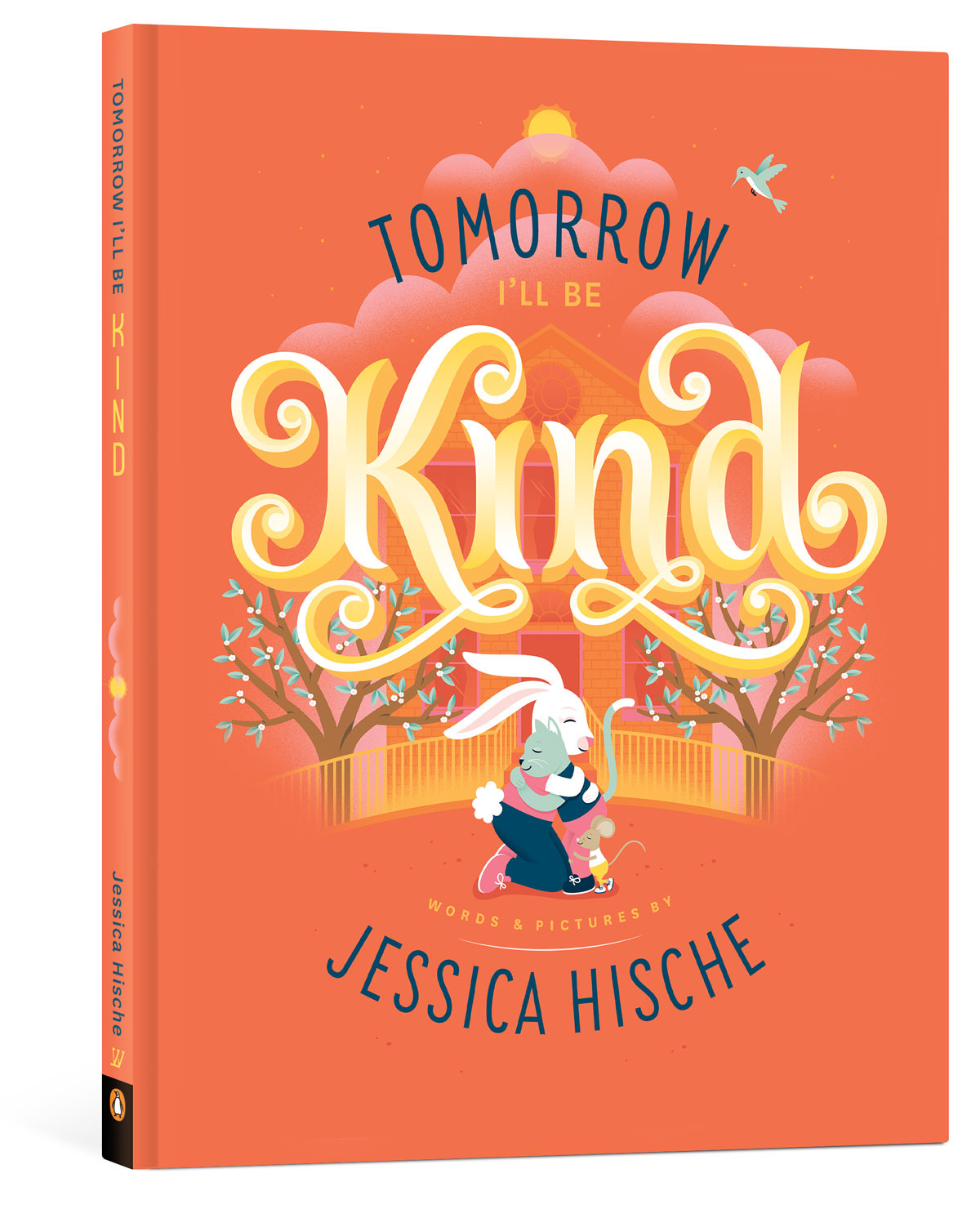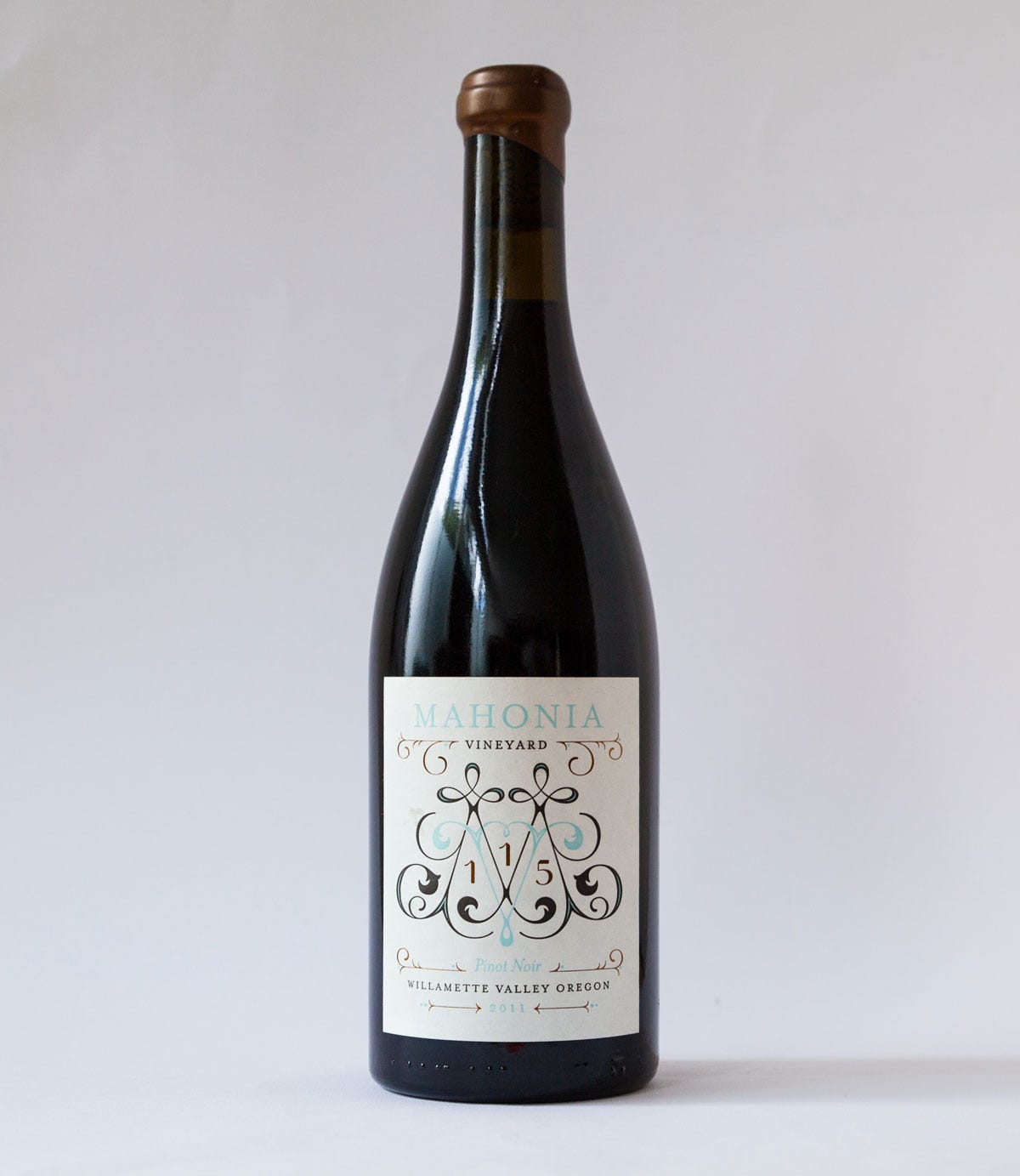Jessica Hische: On hormones, money, and protecting your time
Advice from one of the world's greatest lettering artists
Welcome to The Creators Forum! I’m so happy to have you all here. If you want to learn more about what this is and why I created it, check out the About page.
And now, I’m so excited to kick off this interview series with Jessica Hische.
Jessica Hische
Age: 36*
Kids: Ramona, 5; Charlie, 3; George, 20 months
Location: Oakland, CA
Industry: Lettering artist and author
Website: Jessica Hische
*Ages at time of interview
Jess is a wildly talented lettering artist, and even if you’re not sure what that means, your subconscious is a big fan of her work. Jess makes the world more beautiful, working on everything from logos to book covers to wine labels, and a million other things. Plus, she has also written and illustrated some darling children’s books.
While chatting with Jess, what jumped out at me as her super talent is her uncanny ability to step back and see the arc of her life from a distance. And she’s been doing that since she was in her twenties (when I, for one, couldn’t see past my next wad of tips from bartending). She knew the type of life she wanted and figured out what was required to have it. She’s like a goddamn sage with a Monroe piercing.
When you have kids, especially when they’re little, it’s easy to feel like you have become a parasite’s host, and that this is now your life forevermore. And even though you really, really love the parasite, that feeling can bring darkness. Jess shines some lovely light on that phase.
Read on to learn how she copes with hormones and work-life balance, and I hope you enjoy her refreshing no-nonsense talk about money as much as I did. (I might have had to look up “passive income” after our chat. Which explains so, so much. And maybe that’s the kind of thing that should be taught in school?)
Now, Jessica Hische, in her own words…
On having a plan:
I’ve always known I wanted to have kids. Not everybody knows that, but I’ve always known it. I loved having a sibling, and I’m a nurturer. I don’t know what it is, but it was never a thing I questioned. In terms of how I navigated my career, I always had that in the back of my mind: This is a thing that’s going to happen, so how do I make it so that my career doesn’t go totally off the rails when I do it? I read an article a while ago about the pay gap between men and women, and women certainly get offered less money than men, but it’s also because a lot of women choose careers that are more flexible, knowing that they’re going to have a family. And I am definitely in that category. Thankfully, I have been able to have a very lucrative career despite that choice, but I definitely chose a flexible career and have kept my business very flexible knowing that this was going to be a big part of my life for five to ten years.
Before kids, work took over. I was working all the time, probably 80 or 90 hours a week. But it wasn’t all client work. It was a mix of me working on passion projects, of me doing a lot of public speaking, of me doing client work. I traveled a ton. I spoke at 100 or more conferences. That was my pre-kid life. Even most of my social time came through work. I was really involved in the design community in New York and then when I moved out here, a lot of my social time was hanging out with a lot of people in design and illustration and creativity in general.
When I had kids, I knew there would be a big seismic shift in my availability. I didn’t want to be a parent whose work remained a priority, especially in those early years when you really need to be there, or you need someone to be there, and I wanted to be that someone. So I just had to draw boundaries on my time, which was working a much more 9-to-5 schedule and not letting work invade my evenings and weekends. I wanted to be able to be really present and not be overloaded, not be in that tired, anxious, juggling mode when you’re trying to do two jobs at once.
On working after childbirth:
I was able to jump back into work, but I’ve been really careful about what kind of work I take on. I get overwhelmed really easily. So immediately after having a baby, I tended to take on work that wasn’t crazy challenging. It was challenging in different ways. It was challenging in technical ways, but maybe not conceptually, or often it meant not working way outside of my wheelhouse. Part of that is because I had a really long postpartum depression period with each of my kids. It didn’t happen at first. At first you get pregnancy brain—a little bit of forgetfulness, exhaustion from sleep disruptions that start while pregnant, etc. After each kid I had a bit of the baby blues and horrible insomnia but overall felt fine. But then for each of them around when I would start weaning, things would start getting a little hairy in terms of mood balancing. And I would feel so anxious all the time, just crushed by anxiety, like panic-attack anxiety. With Charlie, I had really classic depression, where I was so tired I had to take these three-hour naps that I could never find time for. I was just exhausted in a way I hadn’t been before. But I knew to recognize it.
I pay really close attention to when I feel hormonal fluctuations, and I navigate my work around it. I’m less ambitious about projects that I take on when I’m in a more fragile hormonal state. I’ll just take on stuff that is really sturdy, not easy, but not hyper-challenging.
On the power of money:
My parents got divorced when I was 14, and my mom didn’t really have a career. Seeing her struggle over all these years of not having a thing financially grounding her is really, really motivating. So it became a thing of like, I will never be in a position in which I am not able to take care of myself financially and not able to have that be a part of supporting my family.
I’m passionate about the work I do, for sure. But I am not shy about being motivated by making money. I think financial independence and being smart about your finances is one of the main keys to happiness because it removes so much stress and removes so much unease. I think a lot of people get weird about saying that they’re motivated by money, but if I can make enough money to not stress out all the time, then I can really be present in my family and be there for my kids—not spending all of my time in another place mentally because I’m worried about being able to pay bills.
On making creative motherhood possible:
I never thought of myself as a long-term planner...but I have done a lot of planning around making this doable. Making creative motherhood doable. One of the big things was I knew how powerful passive income could be and really making that a priority in my late 20s. It was a goal of mine: I want to have $100K a year in passive income. I want to make it so that if I had to not work at all, I would still have an income to cover some basic stuff. The idea was, How do I make it so the money makes itself when I have to be offline because I’m taking care of kids?
It’s really been the thing that saves us. Even though we have these huge bills and we’re managing all this stuff, because of all the passive income things I have going on—because I bought an apartment in New York when I was 24 and now it’s a rental apartment—the amount of money that I have to make per month is half or less of what it would be without that. It takes the pressure off me to take only high-paying jobs or to be cranking 24 hours a day or working until 2 a.m. or taking a Saturday to work. It allows me to be a mom also. I am done working at 5 p.m. I never work on the weekends. I’m present for the kids from dinner to bedtime. I’m really proud of that, and I think that’s the thing I’ve done best in all this.
On putting things in perspective:
When I talk to other people who are moms, people are really hard on themselves about not being able to be fully present in either their careers or with the kids. And you only have so much attention in your day and so many hours to be able to devote to any given thing. The biggest advice or perspective that people gave me early on is that the really intense part of parenting is a really brief period of time. The 0 to 5 period is so intense. But it gets so much easier to manage after that moment. Knowing that it was this really short period of time allowed me to be okay not feeling like I was at 100 percent with my career. It’s five years, what’s the big deal?
You don’t get this time back. You can get this time back in your career, but you can’t get this time back with your kids.
*Interview has been edited for length and clarity.
Thank you, Jess! Now let’s hear from you all. Tell us what you think in the Comments.
Logo design by the incomparable Megan Lotter.








